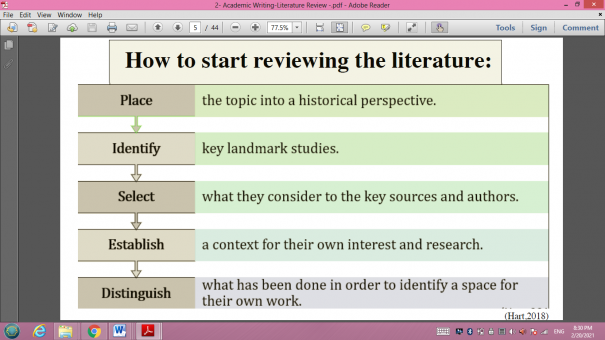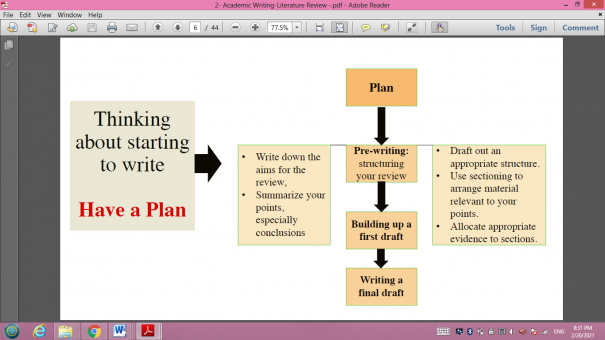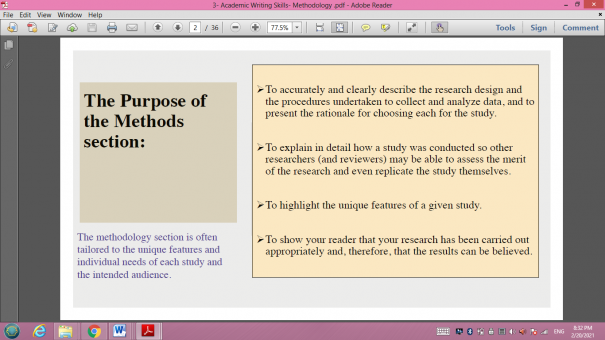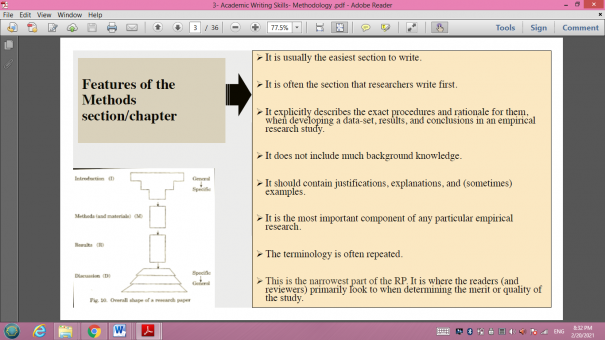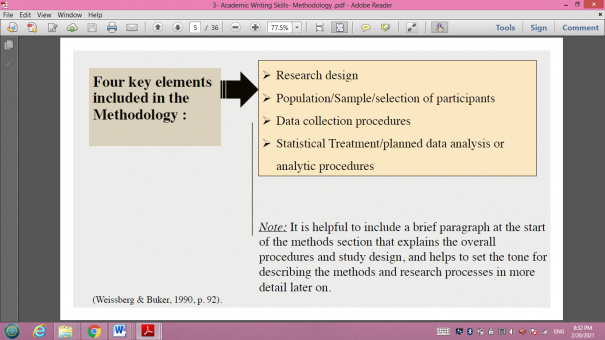Academic Writing Webinar: Session 2
On February 15, 2021, the Women's Scientific Research Committee of the Bachelor of Arts in English program organized the second session of webinars on academic writing by Dr. Nada Alqarni.
Dr. Alqarni started her speech by referring to a common mistake that the authors should steer clear of, which is to sprinkle references liberally around with insufficient thought as to how they fit into the theory and the theme. She explained that a good start would be to place the topic into a historical perspective and identify key landmark studies. Additionally, the authors could establish a context for their own interest and research and distinguish what has been done in order to identify a space for their work. Dr. Alqarni asserted that the literature review should indicate the core concepts, the variables, and the findings of the research paper. She then reviewed the steps researchers should follow in writing the review of the literature. First, they should find the information and studies that are relevant to their topic. Second, they should summarize these studies (organize and evaluate them), indicating who found out what, when, and how this developed the study of the topic. Finally, the researchers should finish with a conclusion, explaining the gaps in knowledge that they have identified and how their research will fill these gaps left by previous research.
Dr. Alqarni highlighted the significance of the works cited in a research paper. Researchers, she said, should apply a mental test every time a work is referred to or a quotation is included. This mental test consists of asking the questions if this reference adds to the development of the theory. How does it follow the thread of the research paper? And how does it relate to the research questions? Then the research should indicate the gap in the knowledge to be filled. Dr. Alqarni discusses the rules of citation tense. She illustrated that a move from past to present perfect and then to present indicates that the researchers reported are increasingly close to the writer in some way. She then reviewed the methods of giving a general panorama of past-to-present literature, reporting what specific authors have said, and highlighting the limitations of previous studies. Dr. Alqarni provided many valuable examples that clarified all the steps for writing the literature review effectively.
The webinar, which was very informative and highly interactive, was attended by MA & Ph.D. students and staff members who all indicated the significance of the webinar content.
Date: 2/21/2021
Source: Dr. Amal Metwally – Head of Scientific Research Committee

